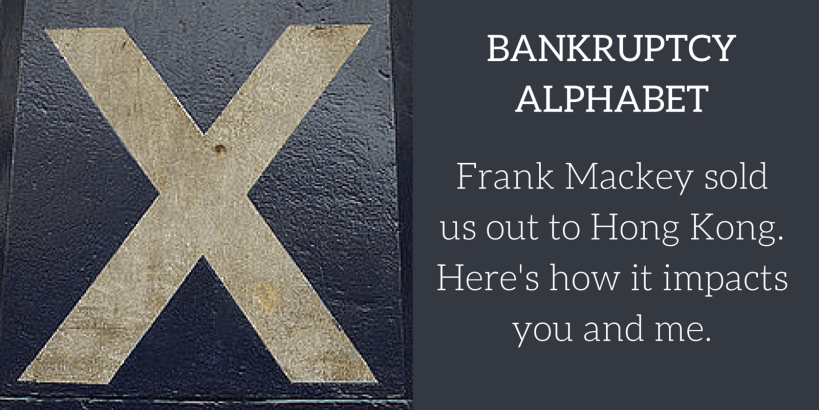Remember Gus?
Back in the day, Gus ran the local store. And if it wasn’t for him, we would have been in deep trouble.
If we fell short one week, asked Gus to let us slide until next pay period. He’s nod and smile, and we’d be able to buy groceries that week.
Poor old Gus is gone now, replaced with a conglomerate run by people who live and work thousands of miles from us.
We live in a xenocracy, our lives intertwined and to some extent owned by people who live thousands of miles away.
This is one of the most important things you need to bear in mind when charting your personal financial future. Forget for a moment and you’re lost forever.
Watch how it works.
In October 2008 the federal government injected $200 billion into the U.S. financial system, taking partial ownership in companies such as Wells Fargo, State Street Corp., Bank of America, JPMorgan Chase, Citigroup, Morgan Stanley, Goldman Sachs, and more.
The U.S. Treasury Department currently owns 77% of American International Group, one of the largest insurance companies in the nation.
Maybe you think that means our government owns (or owned) these companies. You’d be right, but the next question to ask would be, “who owns the government?”
Who Replaced Gus?
Remember Gus at the mom-and-pop store? He’s gone now, but who replaced him?
A guy named Frank Mackey started it all.
Frank Mackey of Minneapolis, started The Household Finance Corp. in the late 1870s and introduced installment payment systems to the American consumer. By the mid-1960s, Household had 1,200 offices with about $1.1 billion in outstanding loans. For all intents and purposes, Household Finance pioneered consumer credit in the United States.
But old Mackey is long gone, as is Household Finance Corp. In 2003, Household International was bought out by British banking giant HSBC Holdings PLC.
And Who Replaced Frank?
The world replaced Frank.
Foreigners hold approximately 32% of the total debt of the United States government, with the largest holders being the central banks of China, Japan, the United Kingdom and Brazil. This figure is growing each year, rising from 13% of the public debt in 1988 to 25% in 2007.
Here’s the thing. It used to be that we owed money to our neighbor. Then we owed money to a corporation with ties solely to the United States. Our money went elsewhere, but that elsewhere was within our borders.
Then our corporations began to take on investments from foreigners who bought securities on the open market. The corporations became global, which meant that our monthly credit card and mortgage payments went overseas.
Eventually, our government needed money and became a debtor nation. It’s easy to see why, of course: we no longer made what we needed, so we didn’t have the benefit of getting the revenues for sale of goods. A foreign corporation produced our widgets, so we sent our money abroad in furtherance of buying those widgets. That, in turn, decreases our tax revenue.
With less tax revenue, we needed to borrow money. Money we eventually used to prop up financial institutions. So we borrow money from China to help keep our financial institutions – owned in part by other nations – alive.
None of this is bad or good, it just reflects the globalization of world finances. Money moves from country to country with ease, changing hands at the press of a button on a computer. Over and over again, so that the wheel continues to turn.
What Does This Have To Do With The Bankruptcy Alphabet?
Bankruptcy has to do with your money, and with your personal financial balance sheet. You think you’re dependent upon your own fortunes to keep your financial situation in check, but the reality is that it’s not the case.
You rely on your job to keep your money coming in, your mortgage company to keep your interest rate steady, your credit card company to maintain your open line of credit.
All of these things and more depend on what’s going on in Europe, Asia, and South America. The price of oil set by OPEC member nations, and the state of the European Union.
Each of us needs to realize that we live in a xenocracy, our lives inextricably interconnected. They say no man is an island – neither is a nation.
Watch world events before making your own plans.
Image credit: Leo Reynolds
